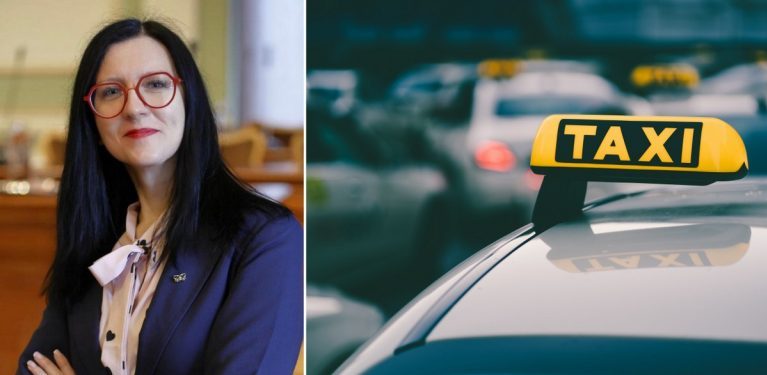Description of the facts
District Court of Z. by order of 25.5.2023, II W 205/23, acknowledged K.S. for the fact that in the town of L. by public road he was driving the vehicle of the S. brand, without having an global licence to drive vehicles in Poland, i.e. a violation of Art. 94 § 1 KW, for which he imposed a fine of PLN 500.
The suspect objected to the judgement in its entirety.
After the hearing, the territory Court of Z. in judgement of 18.10.2023, II In 205/23 found the suspect guilty K.S. for committing an offence against Art. 94 §1 KW and for this he fined him PLN 500.
The president of the territory Court in Ząbkowice Śląski, by order of 8.1.2024, II In 205/23, refused to accept an appeal against it after the expiry of the deadline, and by order of 5.2.2024, declared the validity of the judgement in question with mention to act II In 205/23 with effect from 30.1.2024.
Cassation in favour of the suspect was brought by the lawyer General, accusing of gross and materially affecting the content of the judgement of a breach of procedural law, i.e. Article 8 of the NAP, Article 34 of the NAP, and Article 82(1) of the NAP, in conjunction with Article 410 of the NAP, consisting of the conduct of the court meriti defective, since the selective and incomplete assessment of the evidence collected and the resulting circumstances, including, in particular, the paper in the form of a driving licence issued on 31.5.1976 and valid without a time limit, the paper in the form of a driving licence issued on 20.4.2023 and the explanations blamed.
By raising the above allegations, the lawyer General requested that the contested ruling be repealed and that the case be re-examined.
The ultimate Court, after examining the cassation brought by the lawyer General in favour of the defendant, annulled the contested judgement and referred the case to the territory Court of Z for re-examination.
Reasons for SN
According to the ultimate Court, the cassation of the lawyer General is, of course, justified, which allowed it to be taken into account by the ultimate Court at its sitting under Article 535(5) of the NCP in conjunction with Article 112 of the NAP. The reading of the file shows that K.S. He was found guilty of committing an offence under Article 94(1) KW, which he committed in specified a way that 5.4.2023 at about 17:01 in L. was driving on a public road without the required permission. However, a correct assessment of all the evidence gathered does not let for the acceptance that at the time of the incidental he did not have the right to drive a peculiar category, i.e. he did not get it at all or lost it as a consequence of their withdrawal. In the file of the case, as an annex to the objection, a copy of the driving licence issued on 20.4.2023 was submitted by the defendant, stating that he had been entitled to drive category B vehicles continuously since 31.5.1976.
In the light of the above, it should be shared with the Advocate General's view that the judgement under appeal was brought against a flagrant and having a crucial influence on its content by a breach of the procedural law referred to in the plea of cassation, namely the assessment of evidence collected by the Court of First Instance, in which it omitted and failed to examine at the level of implementation of the criteria of Article 94 § 1 of the CRS, the applicable papers and the circumstances resulting therefrom, and the explanations of the suspect which had to be assessed, inter alia, at the level of Article 124 of the Law of 5.1.2011 on driving vehicles (Journal of Laws of 2024 item 1210; hereinafter: DriverPojU), which entered into force on 19.1.2013. It has implemented its regulatory framework for the implementation of Directive 2006/126/EC of the European Parliament and of the Council of 20.12.2006 on driving licences (recast) (OJ L L 268, 17.9.2006, p. No 403, p. 18) and in part Directive 2003/59/EC of the European Parliament and of the Council of 15.7.2003 on the first qualification and periodic training of drivers of certain road vehicles for the carriage of goods or persons, amending Council Regulation (EEC) No 3820/85 and Council Directive 91/439/EEC and repealing Council Directive 76/914/EEC (OJ 2003 UEL Regulation No 226, p. 4).
The aforementioned Article 124(1) of the DirectPojU concerns the exchange of driving licences issued without a time limit, on the basis of provisions in force before the date of entry into force of the said Act. That provision imposed on persons holding a licence issued until 19.1.2013 the work to exchange them for a driving licence in accordance with the model set out in the provisions issued pursuant to Article 20(1)(1) of the DirectPOJU. Paragraph 4 of Article 20 of the Drivership sets the time limits for the exchange of driving rights, under the rigor referred to in paragraph 6 of Article 124 of the Drivership, de facto failure of the validity of the document. The terms of validity and of the expiry of validity which are operated by Article 124(6) of the Direction of Procedure shall relate to a driving licence paper proving the right to drive and not to the rights themselves. Consequently, the individual who holds the invalid driving licence shall hold the driving privileges, although these privileges will not be available for as long as he does not receive the fresh driving licence.
This paper confirms that it has the applicable powers (judgment of the Constitutional Court of 12.12.2013, K 5/13, Legalis). It is so clearly different entitlement to drive, which are the subject-matter right to drive a kind of motor vehicle, from the driving licence itself, confirming the acquisition of specified rights, as besides indicated by the jurisprudence of administrative courts (e.g. judgement of the ultimate Administrative Court of 30.5.2023, II GSK 1088/22, Legalis; judgement of the Provincial Administrative Court of Poznań of 11.3.2015, III SA/Po 783/14, Legalis). The function of a driving licence is only to confirm the rights held. In the procedure for the exchange of driving licences, the rights of the individual afraid to drive vehicles are not examined or determined, and the issue of the driving licence is simply a material and method activity (judgment of the Provincial Administrative Court in Łódź of 10.3.2016, III SA/Ld 1068/15). Therefore, that the failure of a driving licence, for any reason, including the failure of its validity, is not the same as the failure of driving rights (so did judgement III SA/Po 783/14 and the judgement of the Provincial Administrative Court of Gliwice of 17.9.2008, II SA/G1 158/08).
The scope of the work to hold and display papers on the driver, whose failure to comply may consequence in liability for the offence, is governed by Article 38 of the Law of 20.6.1997. – Traffic Law (Journal of Laws of 2024 item 1251; hereinafter: PrDrog) – in the version in force since 5.12.2020, given by the Act of 14.8.2020 amending the Act – Traffic Law and any another laws (Journal of Laws of 2020 item 1517).
The provision of Article 38(1) PrDrog obliges the driver of the vehicle to carry with him and to produce, upon request, a paper stating the right to drive a vehicle another than a licence issued in the country if he does not have a licence issued in the country (cf. ultimate Court judgement of 23.6.2021, V KK 181/21, Legalis).
According to Article 4(2) of the Regulation, a paper stating the right to drive is issued abroad. Therefore, possible liability K.S., who did not have a valid driving licence issued in Poland on the date of inspection required clarification under Article 95(1) KW, whether the U.S. licence issued in the State of M, which he issued at the request of the police, meets the requirements laid down in Article 4 of the DirectPOJ.
Comment
In the reality of the case, there was no question that K.S. 5.4.2023, contrary to the position of the territory Court of Z., held the applicable powers, but did not have any evidence of possession of those powers, which is not adequate to accept the fulfilment of the criteria of Article 94(1) of the Code. In contrast, the driving of a vehicle by public road, with appropriate powers, but without the required documents, penalises another provision of substantive law, namely Article 95(1) KW, specifying a milder liability in relation to the available Article 94(1) KW.
Judgment of the ultimate Court of 13.2.2025, I KK 387/24, Legalis













